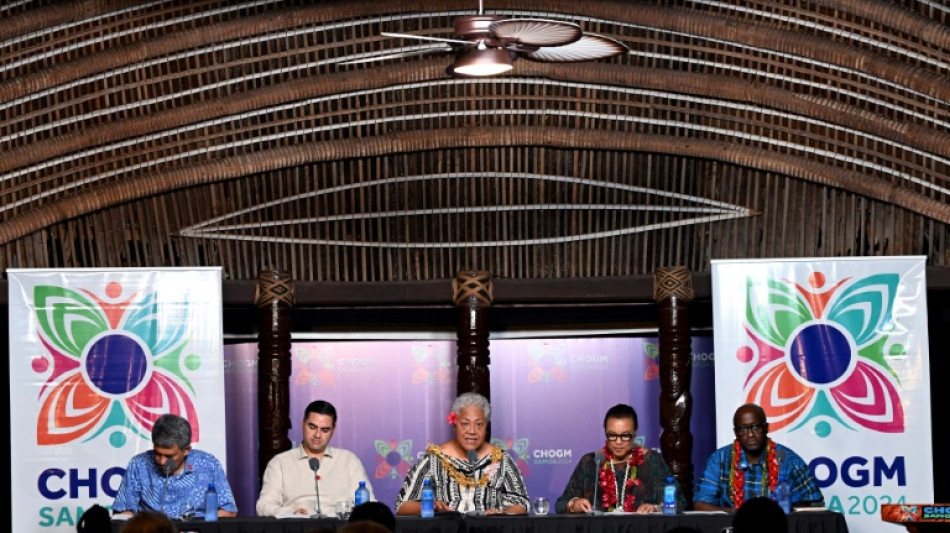
-
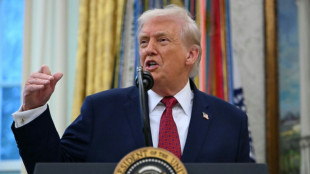 BBC says will fight Trump's $10 bn defamation lawsuit
BBC says will fight Trump's $10 bn defamation lawsuit
-
Stocks retreat ahead of US jobs, oil drops on Ukraine hopes
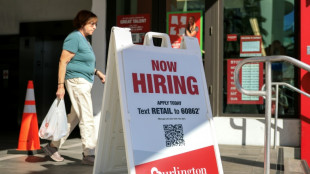
-
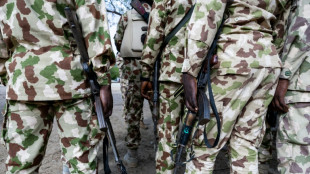 Suicide bomber kills five soldiers in northeast Nigeria: sources
Suicide bomber kills five soldiers in northeast Nigeria: sources
-
EU set to drop 2035 combustion-engine ban to boost car industry
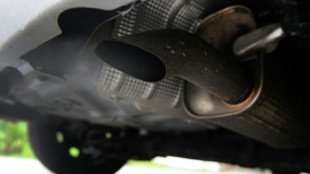
-
 Australia's Green sold for record 252 mn rupees in IPL auction
Australia's Green sold for record 252 mn rupees in IPL auction
-
Elusive December sun leaves Stockholm in the dark
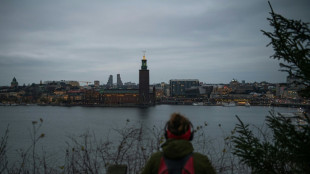
-
 Brendan Rodgers joins Saudi club Al Qadsiah
Brendan Rodgers joins Saudi club Al Qadsiah
-
Thailand says Cambodia must announce ceasefire 'first' to stop fighting

-
 M23 militia says to pull out of key DR Congo city at US's request
M23 militia says to pull out of key DR Congo city at US's request
-
Thousands of glaciers to melt each year by mid-century: study

-
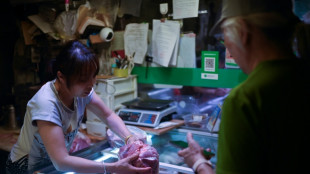 China to impose anti-dumping duties on EU pork for five years
China to impose anti-dumping duties on EU pork for five years
-
Nepal starts tiger census to track recovery

-
 Economic losses from natural disasters down by a third in 2025: Swiss Re
Economic losses from natural disasters down by a third in 2025: Swiss Re
-
Indonesians reeling from flood devastation plea for global help

-
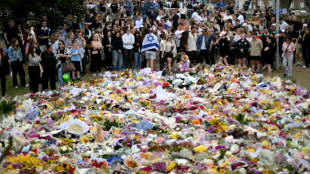 Timeline: How the Bondi Beach mass shooting unfolded
Timeline: How the Bondi Beach mass shooting unfolded
-
On the campaign trail in a tug-of-war Myanmar town

-
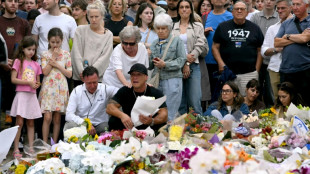 Bondi Beach suspect visited Philippines on Indian passport
Bondi Beach suspect visited Philippines on Indian passport
-
Kenyan girls still afflicted by genital mutilation years after ban
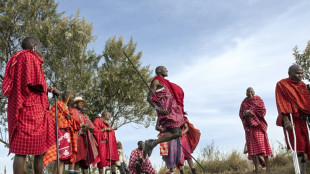
-
 Djokovic to warm up for Australian Open in Adelaide
Djokovic to warm up for Australian Open in Adelaide
-
Man bailed for fire protest on track at Hong Kong's richest horse race

-
 Men's ATP tennis to apply extreme heat rule from 2026
Men's ATP tennis to apply extreme heat rule from 2026
-
Cunningham leads Pistons past Celtics, Nuggets outlast Rockets

-
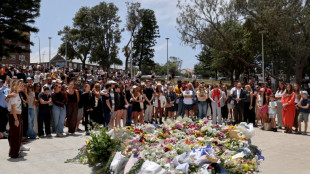 10-year-old girl, Holocaust survivors among Bondi Beach dead
10-year-old girl, Holocaust survivors among Bondi Beach dead
-
Steelers edge towards NFL playoffs as Dolphins eliminated

-
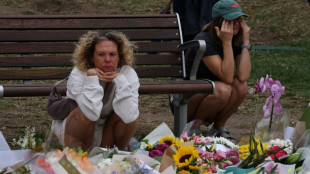 Australian PM says 'Islamic State ideology' drove Bondi Beach gunmen
Australian PM says 'Islamic State ideology' drove Bondi Beach gunmen
-
Canada plow-maker can't clear path through Trump tariffs

-
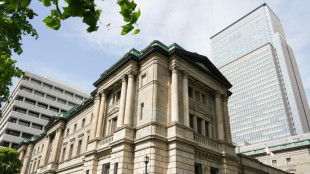 Bank of Japan expected to hike rates to 30-year high
Bank of Japan expected to hike rates to 30-year high
-
Cunningham leads Pistons past Celtics

-
 Stokes tells England to 'show a bit of dog' in must-win Adelaide Test
Stokes tells England to 'show a bit of dog' in must-win Adelaide Test
-
EU to unveil plan to tackle housing crisis

-
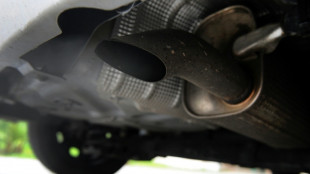 EU set to scrap 2035 combustion-engine ban in car industry boost
EU set to scrap 2035 combustion-engine ban in car industry boost
-
Australian PM visits Bondi Beach hero in hospital
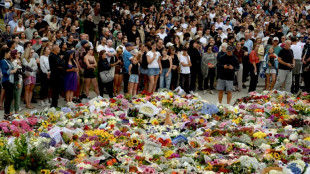
-
 'Easiest scam in the world': Musicians sound alarm over AI impersonators
'Easiest scam in the world': Musicians sound alarm over AI impersonators
-
'Waiting to die': the dirty business of recycling in Vietnam

-
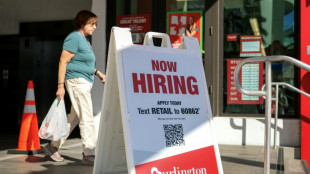 Asian markets retreat ahead of US jobs as tech worries weigh
Asian markets retreat ahead of US jobs as tech worries weigh
-
Security beefed up for Ashes Adelaide Test after Bondi shooting

-
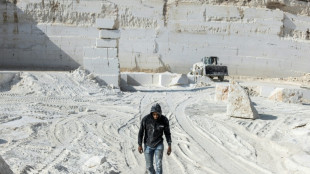 Famed Jerusalem stone still sells despite West Bank economic woes
Famed Jerusalem stone still sells despite West Bank economic woes
-
Trump sues BBC for $10 billion over documentary speech edit
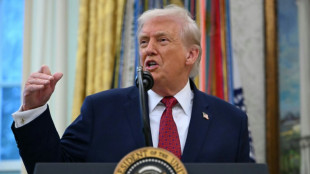
-
 Chile follows Latin American neighbors in lurching right
Chile follows Latin American neighbors in lurching right
-
Will OpenAI be the next tech giant or next Netscape?

-
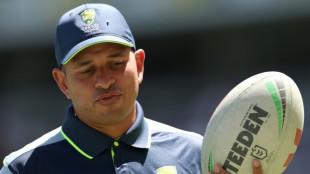 Khawaja left out as Australia's Cummins, Lyon back for 3rd Ashes Test
Khawaja left out as Australia's Cummins, Lyon back for 3rd Ashes Test
-
Australia PM says 'Islamic State ideology' drove Bondi Beach shooters
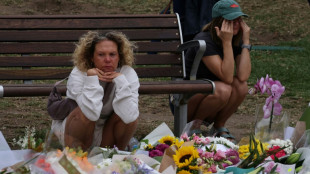
-
 Scheffler wins fourth straight PGA Tour Player of the Year
Scheffler wins fourth straight PGA Tour Player of the Year
-
The U.S. Polo Assn. Palm Beaches Marathon Celebrates Record-Breaking Weekend in West Palm Beach, Florida

-
 Mosaic Announces Phosphate Production Curtailments in Brazil
Mosaic Announces Phosphate Production Curtailments in Brazil
-
Ryde and GO-GENIE Deepen Partnership to Optimize Resources and Unlock More Opportunities for Gig Workers

-
 Snowline Gold Awards Key Contracts and Commences Prefeasibility Study on its Flagship Rogue Project, Yukon
Snowline Gold Awards Key Contracts and Commences Prefeasibility Study on its Flagship Rogue Project, Yukon
-
Tokenwell Plans to Establish U.S. Subsidiary in Dallas, Texas, to Expand its Presence in the Growing Digital Asset Hub

-
 CTT Pharma's Scientists Publish Peer-Reviewed Paper in the Journal of Drug Delivery and Therapeutics
CTT Pharma's Scientists Publish Peer-Reviewed Paper in the Journal of Drug Delivery and Therapeutics
-
Nano One Receives C$10.9M from Financing and Government Programs


UK treads fine line on slavery legacy, while ruling out reparations
Commonwealth countries want talks on slavery reparations but the United Kingdom -- engaged in soul-searching over its former empire for several years now -- is not open to financial compensation, officials and analysts say.
"I think segments of British society might be ready to talk about reparation but you have other sectors, the majority really, that strongly oppose it," Sascha Auerbach, director of the Institute for the Study of Slavery at Nottingham University, told AFP.
Meeting last week at a summit in Samoa, the Commonwealth's 56 members said the "time has come" for talks about the legacy of the transatlantic slave trade, in a landmark declaration that raised the prospect of future reparations.
African, Caribbean and Pacific nations want Britain -- and other colonial powers -- to apologise for slavery and other ills of colonisation, and to start talks about compensation.
Labour Prime Minister Keir Starmer, a former human rights lawyer, has rejected both requests, arguing that he wants to "look forward" rather than have "very long endless discussions about reparations" involving the past.
"I think he is concerned that the country is not ready to have this conversation," said Alan Lester, a historian at the University of Sussex, noting that any talk of restorative justice a few months after far-right riots rocked England is seen as politically risky.
The issue is divisive. Figures in centre-left Labour -- which came to power in July -- have long been open to the debate, but the Conservatives reject it outright.
Robert Jenrick, one of the candidates to be the new Tory leader, has said that criticising the British Empire is anti-patriotic.
He wrote recently that "the territories colonised by our empire were not advanced democracies".
"Many had been cruel, slave-trading powers. Some had never been independent. The British empire broke the long chain of violent tyranny as we came to introduce -- gradually and imperfectly -- Christian values," he added.
While Britain has expressed remorse for slavery in broad terms, London has baulked at the idea of paying financial reparations, which would likely come with a hefty price tag.
A 2023 report co-authored by a United Nations judge, Patrick Robinson, concluded that the UK likely owed more than £18 trillion (or 21 trillion euros) for its involvement in slavery in 14 countries.
This figure took into account the unpaid wages of slaves, trauma caused, and damages owed to their descendants.
So far, the Commonwealth countries have not put forward any figures of their own.
"It's very unlikely that countries would ask for that figure," Lester, the historian, told AFP.
Auerbach suspects that money is not the countries' "main goal".
"What they want is recognition and accountability," he said.
Opponents in Britain point out that a public apology could open the doors to legal action against the country. Auerbach notes that the Netherlands' government and king apologised last year for slavery and has not yet been sued.
For its part, the British royal family has so far stopped short of apologising.
King Charles III did, however, on a visit to Kenya last year, express his "greatest sorrow and deepest regret" over the "abhorrent and unjustifiable acts of violence committed against Kenyans" during colonial rule.
"It's a delicate subject. I would say that the monarchy has navigated this debate very skillfully," Professor Pauline Maclaran at Royal Holloway, University of London, told AFP.
Other British institutions have issued apologies or owned up to mistakes, including the Church of England which officially said sorry in 2020.
The National Trust, which protects heritage sites, published a report the same year detailing links between dozens of properties it runs and the slave trade.
Earlier this year, the esteemed Royal Academy of Arts held an exhibition about how British art was implicated by slavery -- a first in its more than two centuries of existence.
"At least we're having the conversation in the Anglo-Saxon world, which is not the case in Spain or France," said Auerbach.
P.Santos--AMWN
